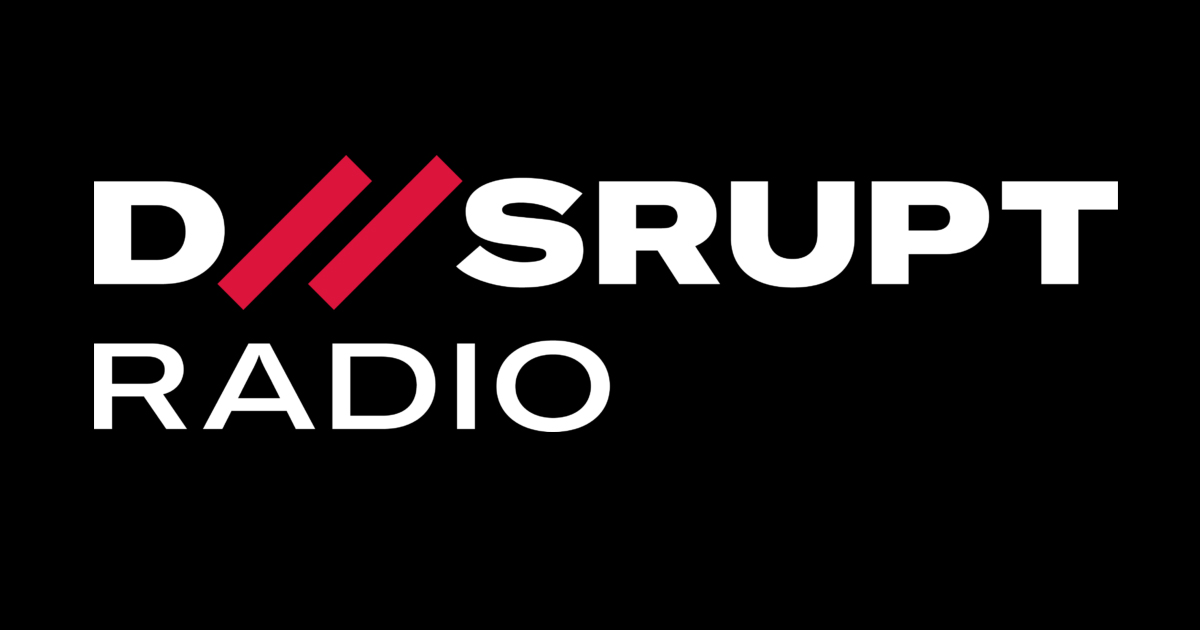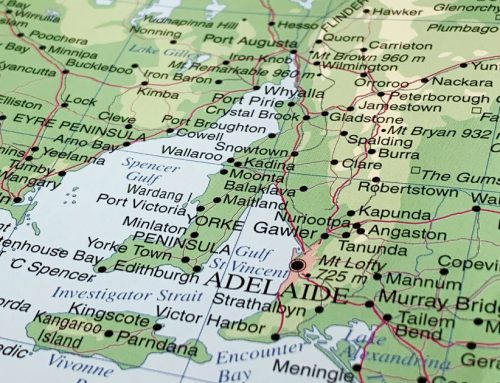Navigating Challenges: Insights on Economic Trends and Regulatory Simplification
Bill Lang, Executive Director of Small Business Australia, explores the mixed economic landscape for small businesses, the ongoing impact of COVID-19, and the critical need for simplifying regulatory compliance to foster local entrepreneurship and growth.
Listen to the radio segment below.

Note: The following transcription has been produced by AI, please allow for incorrectly transcribed audio.
00:00
The new financial year brings all kinds of changes, and we've covered quite a few of them here on enterprise breakfast this week. But what we haven't heard about, really, yet is what's it's all bringing for small businesses around the country. That's about to change, because I've got the guy with me. His name is Bill Lang. He's the Executive Director of Small Business Australia, and he's right here in the studio. Bill, thanks for coming in.
Bill Lang 00:21
Great to see you, Elizabeth.
00:22
So let's talk about it. The economy, by the numbers we're here, not doing too badly. Super returns, fine. Stock market, not terrible. Inflation, a bit sticky, but okay. But how we're feeling about the economy is proving to be kind of the bigger marker, in a way. What are you hearing from your members right now in small business? They're almost caught between those two things, I'd imagine.
Bill Lang 00:41
Look, I think it's important to remember that every small business is different. And depending on the industry, the size of the business or the location, the actual economy is very different. So while we get these big picture sort of numbers and things look like they're sort of okay overall, you know, again, depending on your industry, your size, your location, you know, we've got, in some cases, more than a third across the country are losing money. So that's 800,000 small business families going backwards economically. Meanwhile, they see people getting pay rises that are in the employment field, particularly if they're public servants and things. So it's a very, very mixed picture, depending upon, you know, the location, the size, the type of industry the business is in.
01:22
We're in different realities, almost. And I think that started during covid because you had people who kept receiving disposable income. They still had, you know, they had cash that they could spend. And then you had other families and homes having to just sort of batten down the hatches because their job became far more insecure. That's kind of almost continued, but we're not really acknowledging it in our conversations.
Bill Lang 01:43
Look and the impact of covid and the way it worked is still lingering for many, many small business families. So that's the first thing, and most people would know that. And I'd encourage everyone who's got some disposable income to really support their local small businesses, as they did during the pandemic, when they were largely locked down, and going to local businesses. And if you've got some money, please get out there and spend it with local businesses. The big companies can look after themselves, but we really need the support of local community members to support those local businesses.
02:15
When we've spoken about small business and lead up to this, the way you describe it, was very transporting, and you described it as saying, you know, we expect our small businesses to train our teenagers, sponsor our local netball team, donate to the school fate. We're actually asking them to fill all these social functions alongside turning a profit.
Bill Lang 02:35
Look, and I'm not sure that we expect it. I think small business families love being, you know, the heart and soul of their local communities and doing those things. And they're very much community oriented businesses, and we need, you know, customers to continue to support them, to be able to buy local where they're able to do it. Otherwise, we're not going to see large companies or government departments, you know, step into that breach. And in addition to the economic realities we have, you know, an accelerating rate of change with technologies and artificial intelligence and things coming at business owners faster than they ever have before, and quite overwhelming regulatory compliance requirements, where the businesses are being treated as if they're big companies or big government departments. And it's it's too much. It's been too much for too much for too long, and something needs to happen.
03:23
So what do you want to see happen?
Bill Lang 03:24
Well, I think, at the simplest level, from a regulatory point of view, we really should have, from the federal government's perspective, one simple award for employing people, rather than more than 120 of them. You know, we hear about supposed sort of wage theft taking place. You know, big companies, government departments, you know, doing wage theft, even though they can't work out what the appropriate thing is to do. Sure, there's some bad actors, some some people that do the wrong thing, a very small minority, but majority small business owners are looking to do the right thing. So things need to be simplified.
03:54
And you'd argue, Bill, if you simplified, it'd be a lot easier to weed out compliance and non compliance.
Bill Lang 03:58
Well, look, yes and but again, that the simpler things are, the fairer things will be, and the better things will be. And we need to be encouraging people to want to have their own business, to succeed in their own businesses, to be able to do all those great things that they do at the local community level. But it's it's time to simplify things, rather than make things more more complicated and put more stuff on the backs of small business families.
04:21
So who's opening small businesses, or who's running small businesses now? What's the profile of that person, and how is it different to say 20-30, years ago?
Bill Lang 04:29
Look, it's varying quite a bit from many years ago. Many younger people are finding, if they've got a secure job, you know, in a government department or a large corporation, that it's less risky and more secure, and they can work from home and do those sorts of things. So that's becoming more attractive. But, you know, we continue to see which has been the case for many year, immigrant families, people from different countries that have decided to become Australians and get into the country find that, you know, by creating and managing, or even buying and managing their own small business, that is the path to their family's financial security. And you know, being successful members of the Australian community.
05:05
Are there really established and successful small family businesses say people are aging in that role they want to retire in the next 10 years, trying to sell those businesses and finding it difficult to find a buyer?
Bill Lang 05:17
Absolutely. So it's probably, there's probably more businesses coming up for sale as we look at the average age of business owners, it's probably the oldest it's ever been. So we've got a number of family businesses that will be for sale, are for sale. In many cases they've been able to educate their children, who have gone off, in some cases, to university, being the first in their families to do it. That are off with those secure opportunities, working in larger corporations, you know, working in government departments. So no longer is it sort of a natural inheritance of the business sort of process. So there's excess supply, but there is, you know, reducing demand. So there's some just fantastic opportunities for people to actually get an existing business. In some cases, the owners will help finance the purchase of that business and work with the new business owner to continue its success and to further develop it. So I'd encourage the listeners that maybe have been thinking about having their own business, one really good path, a less risky path, is to be able to, you know, buy an existing business that's got
06:15
A track record, it can prove to you of income and size of its audience, size of its market and all those things.
Bill Lang 06:21
Yeah, as well as I'd encourage people to, you know, if there's the opportunity to work in them and to to get a better understanding of how it works, it's, again, much riskier than to potentially take it over from the existing owner. And we see a lot of that going on as well Elizabeth.
06:33
So bill, if you're thinking about that, you're listening right now, and you've been thinking about that, where would you start to find a good fit?
Bill Lang 06:40
Look, well, I think you start with your own assessment in terms of your skills and your strengths. So that's very important. Then secondly, the particular industries that you've got knowledge about that you're interested in, but even using things you know, like various AI tools to get a handle or going to the ABS, to spend the time doing the research around the particular industry and the particular business that you might be looking at. But it takes time. It's there's no hack to it. It takes time to work your way through it in a systematic way.
07:12
Because if you're an aging business owner who wants to find someone to not only take on the business itself, but also continue the work you've been doing, it's not that easy to actually just advertise. It's quite a big thing is it's huge. I mean, it's a multifaceted thing that you're talking about.
Bill Lang 07:25
Yeah, look, and there's a field that, you know, there's professionals in the field that help business owners get their business ready for sale and then help them run that process. You know, good one that we've dealt with over many times with many businesses is Mike Kerr at Kerr Capital, been doing it for 20 or 30 years, working with owners to develop the sales strategy, and then, you know, promote the business to the most likely buyers, and then help the process of the negotiation and the handover.
07:50
Let's talk briefly before we wrap up about what kind of support you provide through Small Business Australia, and one of those things is helping break down these technological changes in AI and other digital platforms to help small businesses navigate them, because they're doing their core business, and they have to do all these other things as well, and expected to kind of be mini experts in all these other things. Something you pointed out to me, fairly simple, but very interesting, the absence of websites for small businesses. Tell me about what we know there.
Bill Lang 08:16
Look, there's about 2.5 million small business entities in Australia, but we still have more than 700,000 that don't have their own website that they manage. Now, a number of that 700,000 have got a page on Facebook or Instagram or maybe a channel on Tiktok or on YouTube, but of course, you're at the mercy of those global technology companies that can change the rules at any time and use the information on who's going to your particular pages on those platforms to sell advertising to your competitors. It's very important to have your own digital presence, as we like to say, if you're not on the screen, you won't be seen, and you need to be building up your own database, your own list of who your customers are. It's critical asset in any business. And we've still got 700,000 that don't have them. And literally these days, for, you know, 50 bucks a month or so, you can, you can get a basic website that you can control up and going to at least what we sort of say, Yeah, you know, own your own race course, have some control over that, rather than leaving in the hands of Mark Zuckerberg and CO.
09:18
Because they can be quite capricious about switching on and off access to it. So I think that's an incredible point. Bill Lang, thank you for being here. Bill is the executive director of Small Business Australia, and you can head to their website for great resources if you run a small business, or if you're thinking about getting into the field. Bill, I've never met someone so passionate about small business. Thank you.




